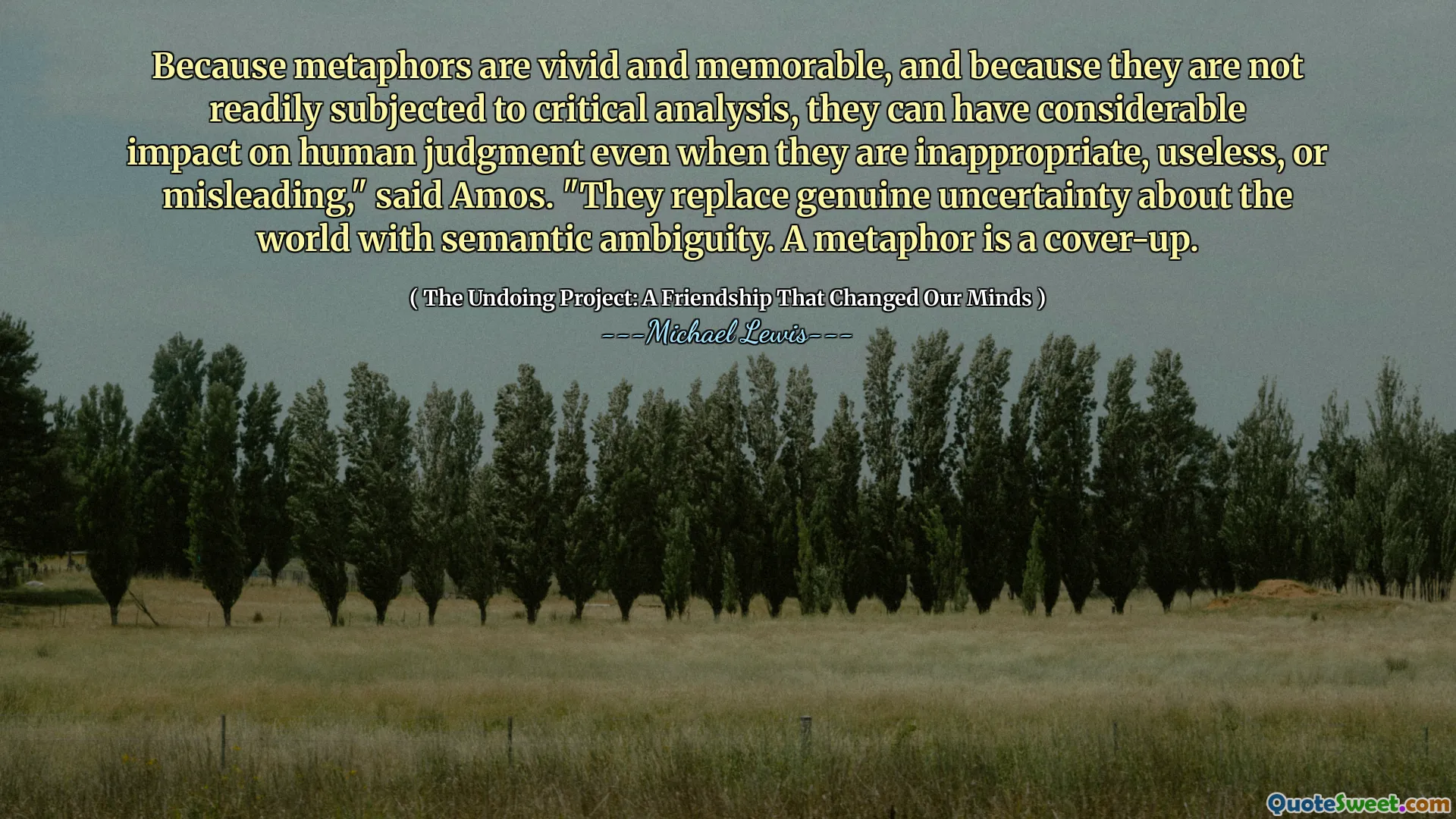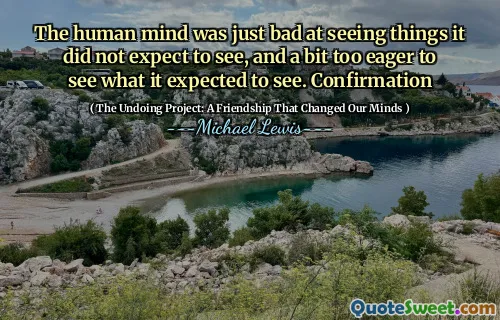
Because metaphors are vivid and memorable, and because they are not readily subjected to critical analysis, they can have considerable impact on human judgment even when they are inappropriate, useless, or misleading," said Amos. "They replace genuine uncertainty about the world with semantic ambiguity. A metaphor is a cover-up.
Amos points out the powerful influence of metaphors on human judgment, highlighting their ability to create vivid images that stick in our minds. Despite their potential for misleading or inappropriate usage, metaphors often evade critical scrutiny, leading people to accept them without question. This can result in a false sense of understanding about the complexities of the world.
According to Amos, metaphors can obscure real uncertainties, replacing them with vague or ambiguous meanings. In this way, metaphors serve as a kind of disguise, simplifying complex ideas but potentially leading to misconceptions. The insights drawn from this perspective emphasize the need for care in how we interpret and rely on metaphors in thought and communication.











